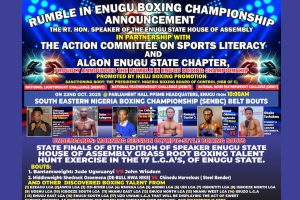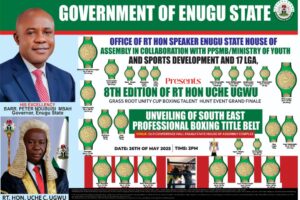When in 2016, the management of Access Bank Plc in partnership with the Lagos State Government hosted the inaugural edition of the Access Bank Lagos City Marathon, it was basically to encourage healthy lifestyle by encouraging people to engage in physical exercise.
Three years down the line, Nigerians are beginning to feel other impacts of the Marathon, especially its contributions to the economic development of Lagos, the host city, in particular and the nation in general.
At inception, the goal of the partnership was to provide strategic support to the country’s sports industry and promote a healthy and active lifestyle among citizens.
The campaign activities was built around the theme: ‘Running from the Old to the New’.
The 2016 Access Bank Lagos City Marathon had 50,000 registered participants, and was ranked 2nd in Africa, after the Cape Town Marathon by the All-Athletics.com, and was ranked 71 amongst over 1,000 international marathons globally.
The Access Bank Lagos City Marathon, in particular, has empowered a number of people in the hospitality industry, including food and drink vendors, fashion designers, advertisers, communication agencies and experts, technical officers, and volunteers that were all engaged from the planning stage to the completion of the marathon.
In Nigeria, tourists especially love “African souvenirs”, many of which are made available along the routes of the marathon and off-site.
The 2018 edition of the Access Bank Lagos City Marathon hosted 35 gold label athletes, 12 silver and 13 bronze label athletes, including 120 international and 150 Nigerian elite athletes.
These numbers do not take into account the tourists who were also present as observers and supporters of the racers.
In 2019, 120,000 people registered to run the 42km path from the National Stadium, Surulere to Eko Atlantic. Over the years, the marathon has grown, pulling in more sponsors and participants, and with them, more observers and enthusiasts.
B
eyond the fit and active lifestyle that running promotes, marathons have become sport tourism events. People now participate in marathons for other reasons which include; self-esteem booster, self-actualisation, self-therapy, and even socialisation.
Marathons are not only beneficial to the participants but also to the host cities. It is for this reason that more cities are launching races to promote tourism and boost their image.
Needless to say, the route was excellently planned to show off some of the city’s finest landmarks, including Eko Atlantic which only grows in splendour as the construction of the megacity continues.
Taking into consideration the transportation, hotels, dining, social activities, post-run sightseeing, family and friends that are likely to accompany the runners, and the size of some marathons, it’s an easy guess that marathons cause a notable boost to the host city’s tourism industry.
Economic impact studies have shown that there are positive economic effects for the host city of a marathon. According to a study performed by the University of Illinois at Urbana-Champaign’s Regional Economics Applications Laboratory, the 2013 Bank of America Chicago Marathon generated “$253.49 million in total business activity to the Chicago economy,” which is “an equivalent of 1,742 full-time jobs and $85.94 million worth of wages and salary income.”
H
ow does this happen? It’s simple, really. Tourists want to explore and get as much out of a city as they can, leaving room for brands to create packages that these tourists will find attractive.
A good example would be travel agencies creating packages specifically for the marathon period, or caterers putting together experience nights where tourists can experience the food culture of the host city. Sport-related brands have also seen a spike in business, increased sales, and top of mind awareness by pushing out content in line with the marathon’s theme of the year.
By hosting a marathon widely watched across the continent and the world, Lagos has consistently informed investors, tourists, and foreign governments that the state is ready for business.
While recognising the effort and investment required in hosting such an event, it also further stimulates future tourist visits, not just during the event. For example, the inevitable economic benefit for many countries that have hosted the Olympic Games include the post-Olympic effect of an influx in international tourist arrivals. Additionally, event publicity also increases interest and the demand for local products and services from vendors, fashion designers, advertisers, travel agencies and experts, even when consumers are yet to visit the area.
Different marathons attract runners who spend money on consumables and sports equipment. International participants also spend money on flights and accommodation, while local runners (who make up to 90 per cent of the runners) also spend money on consumables and every other opportunity in order to fully experience the marathon.
While speaking about the marathon, the group managing director of Access Bank Plc, Herbert Wigwe said, “As one of the leading banks in Nigeria and indeed Africa, it is imperative for us to support the economic and social development of the communities in which we operate. Hence, we have sponsored the Access Bank Lagos City Marathon for five years to make Lagos State more attractive to tourists and foreign investors alike. We have also used this platform as an avenue to create more jobs and opportunities to thousands in the state.”
Economic impact doesn’t just end after the racers have crossed the finish line, these people return to their home countries and share their experiences. This is likely the most plausible explanation why the marathon has enjoyed exponential growth.
Leadership.ng










Add Comment